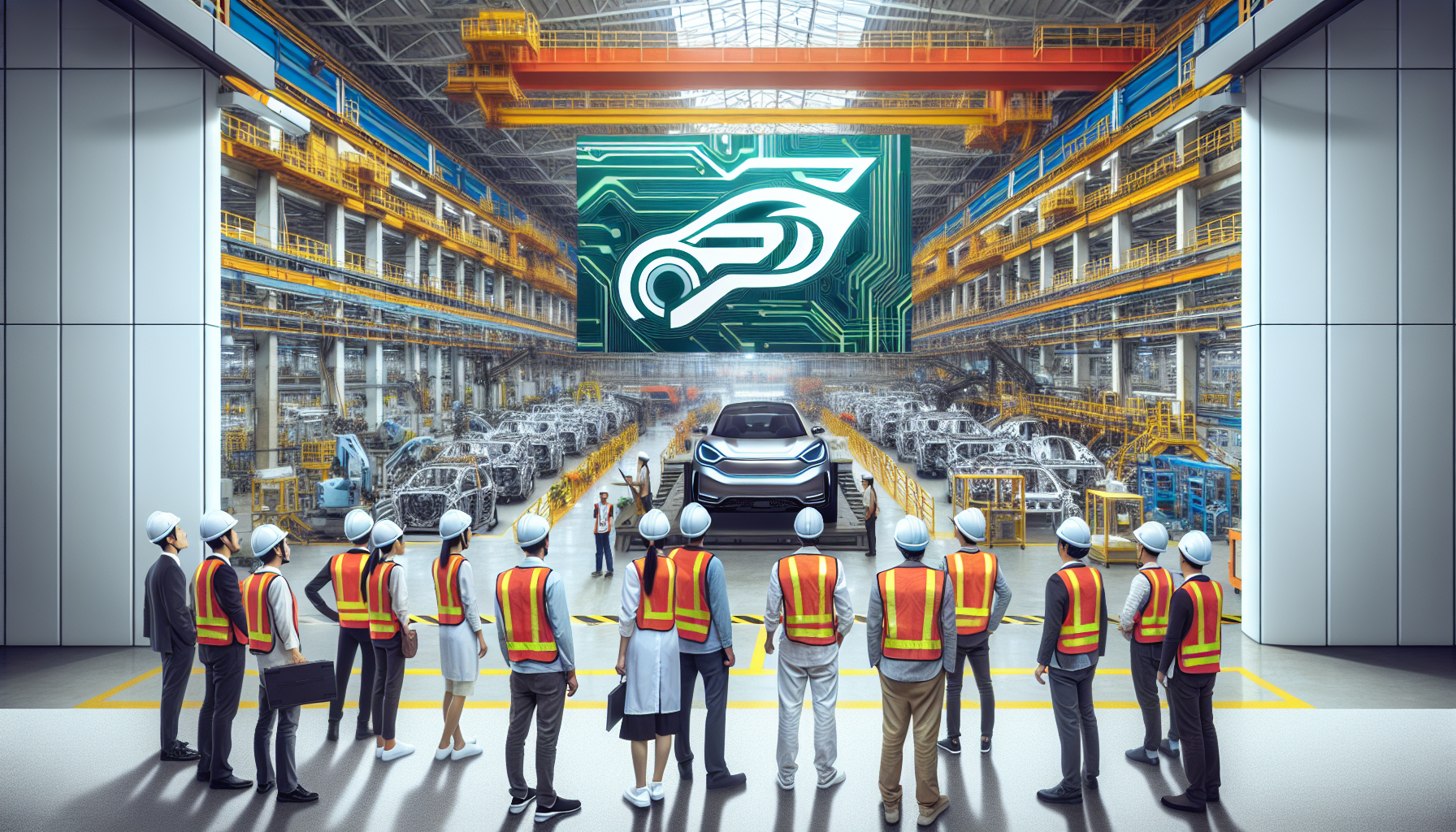
Tours of electric vehicle (EV) factories are all the rage in Beijing, with hordes lining up for a peek inside. Xiaomi, known for smartphones and now EVs, has cashed in on the buzz. They’ve been running factory tours since January, where visitors can ogle at robots in action and take a spin in a Xiaomi EV. But let’s cut through the fanfare.
Chinese EV brands are shifting from cheap pricing wars to flaunting premium features and slick designs. Xiaomi and Nio have thrown open their factory doors, and others plan to follow. It’s all about image and selling a lifestyle, not just cars. Here’s what this really means: It’s a marketing play, plain and simple.
Freya Zhang of Tech Buzz China talks about factory tours as a communication channel. Sure, but it’s also about creating brand evangelists who’ll spread the gospel of automation. Tourists marvel at Xiaomi’s 91% automated factory like it’s a theme park. It’s not the first time we’ve seen this circus — companies have long used tours to dazzle potential investors and customers.
Xiaomi’s factory is mostly machines, with robots doing the heavy lifting. Witnesses describe the spectacle of robotic arms seamlessly moving parts around. Sounds impressive, but let’s not forget: Automation is a double-edged sword. The fewer hands on the line, the less opportunity for human error — but also fewer jobs.
Tourism at EV factories isn’t entirely new. Companies worldwide have done this for years. What’s different? The scale. Xiaomi’s tours are booked solid despite low odds of landing a spot. People are flocking to see the machines, not to buy cars. This isn’t about EVs; it’s about the gee-whiz factor of robots.
Zhao Mingfei, a Xiaomi fan, got a tour spot after a lottery. Xiaomi’s founder, Lei Jun, is a celebrity in China, which helps draw crowds. But it’s not all star power — Xiaomi’s first EV hit the market in 2024, and by 2025, factory tours became a fixture. They’ve ramped up slots to meet demand, but with 27,000 vying for tickets, it’s like winning a golden ticket to Willy Wonka’s factory.
The tour itself? It’s a carefully orchestrated experience. Visitors see the shiny innovations, admire the automated lines, and enjoy a test ride. It’s a controlled glimpse behind the curtain, showcasing Xiaomi’s capabilities. But here’s the bottom line: This is about selling a narrative, not just cars.
Xiaomi’s factory epitomizes the shift to automation, heavily backed by government initiatives. The goal? “Lights-out factories” running without human labor. It sounds futuristic, but it’s a reality that’s been quietly creeping up on us. Foxconn and appliance giants are on the same path, using automation as both a tool and a marketing ploy.
Nio has been showcasing its factory since 2023. In 2024, they hosted over 130,000 visitors. They’re flaunting 100% automation in places, though not in the paint shop. It’s another case of technology taking center stage while humans take a backseat.
Nio’s tours also double as a customer loyalty perk. Unlike Xiaomi, they charge for access through a points system. It’s a classic tech startup tactic — engage the customer directly and keep them hooked. They’re not just selling cars; they’re selling a club, a lifestyle.
BYD and others are getting in on the act too, with gimmicks like latte art featuring car models. They’re even targeting kids with school tours, grooming future consumers early. It’s marketing 101, dressed up as innovation.
In the end, these factory tours are about much more than showcasing cars; they’re about shaping perceptions, building loyalty, and creating a brand narrative that goes beyond metal and wheels. It’s the new frontier of consumer engagement, and it’s here to stay.

